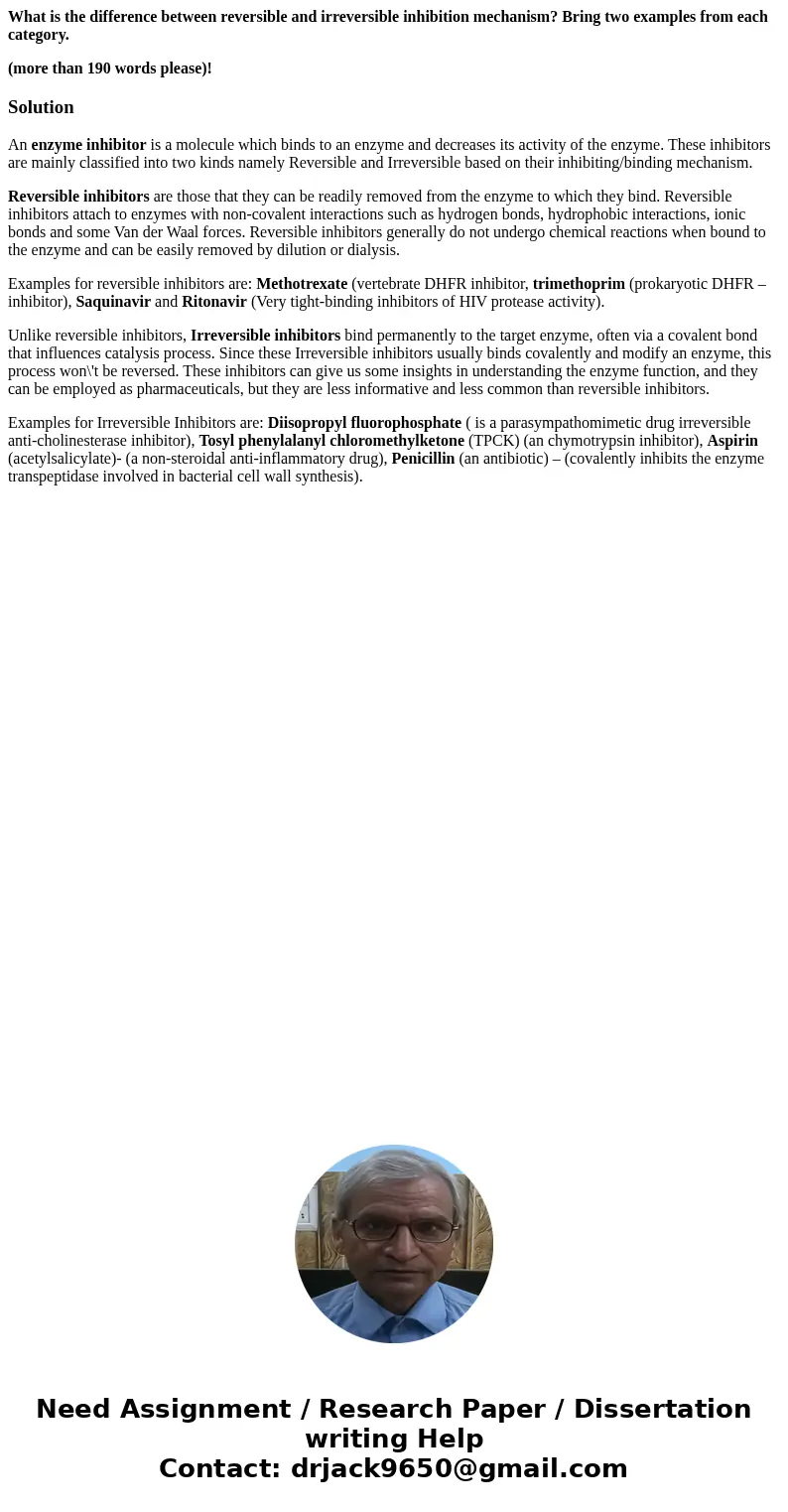What is the difference between reversible and irreversible i
What is the difference between reversible and irreversible inhibition mechanism? Bring two examples from each category.
(more than 190 words please)!
Solution
An enzyme inhibitor is a molecule which binds to an enzyme and decreases its activity of the enzyme. These inhibitors are mainly classified into two kinds namely Reversible and Irreversible based on their inhibiting/binding mechanism.
Reversible inhibitors are those that they can be readily removed from the enzyme to which they bind. Reversible inhibitors attach to enzymes with non-covalent interactions such as hydrogen bonds, hydrophobic interactions, ionic bonds and some Van der Waal forces. Reversible inhibitors generally do not undergo chemical reactions when bound to the enzyme and can be easily removed by dilution or dialysis.
Examples for reversible inhibitors are: Methotrexate (vertebrate DHFR inhibitor, trimethoprim (prokaryotic DHFR – inhibitor), Saquinavir and Ritonavir (Very tight-binding inhibitors of HIV protease activity).
Unlike reversible inhibitors, Irreversible inhibitors bind permanently to the target enzyme, often via a covalent bond that influences catalysis process. Since these Irreversible inhibitors usually binds covalently and modify an enzyme, this process won\'t be reversed. These inhibitors can give us some insights in understanding the enzyme function, and they can be employed as pharmaceuticals, but they are less informative and less common than reversible inhibitors.
Examples for Irreversible Inhibitors are: Diisopropyl fluorophosphate ( is a parasympathomimetic drug irreversible anti-cholinesterase inhibitor), Tosyl phenylalanyl chloromethylketone (TPCK) (an chymotrypsin inhibitor), Aspirin (acetylsalicylate)- (a non-steroidal anti-inflammatory drug), Penicillin (an antibiotic) – (covalently inhibits the enzyme transpeptidase involved in bacterial cell wall synthesis).

 Homework Sourse
Homework Sourse